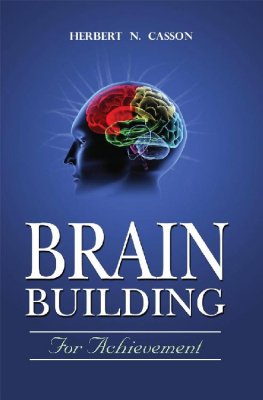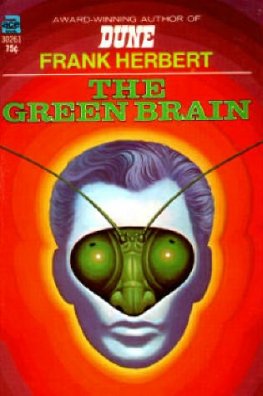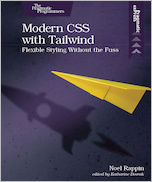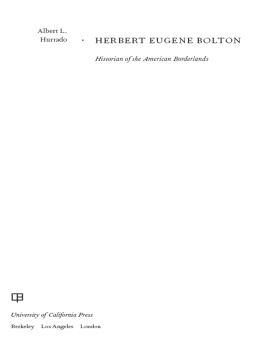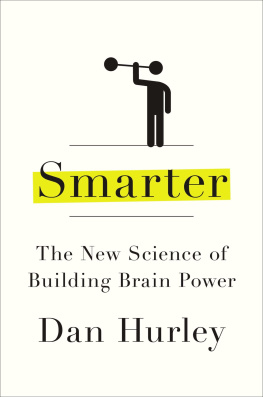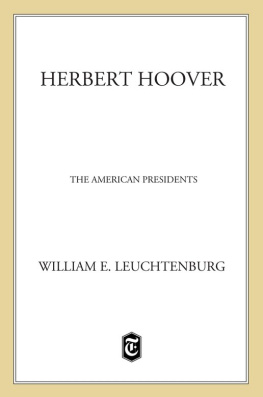BRAIN
BUILDING
for
achievement
Bluejay Books Pvt. Ltd.
A-8/76, Ist Floor, Sector 16
Rohini, Delhi 110 085
Email: book.bluejay@gmail.com
Published in 2012 by
Bluejay Books Pvt. Ltd.
Typeset copyright Bluejay Books Pvt. Ltd.
Typeset at EGP
All rights reserved. No part of this publication may be reproduced, stored in a retrieval system, or transmitted, in any form or by any means, electronic, mechanical, photocopying, recording or otherwise, without the prior written permission of the Publishers.
CONTENTS
PREFACE
C ivilization is now at the crossroads for this reasonthe few clever and creative people have created equipment and new powers and devices which most nations are not competent to use.
Science and invention have run ahead of brain-making, whereas, in order to make civilization safe and workable, brain-making should have come first.
Then, to make matters vastly worse, most nations adopted the wild experiment of political democracy. The Competent Few who create and maintain civilization were shorn of political power by this senseless expedient.
The most worthless lout was given as much political power as the wisest scientist or most useful inventor. And, from that, craziest of all mistakes, most of our troubles and dangers have arisen.
In half a dozen countries, the absurd structure of political democracy has completely broken down. But instead of going forward, these nations have gone back to Dictatorship. The whole fate of a nation is being allowed to depend on the short life of an individual, who may or may not be wise, humane and self-controlled.
Before our eyes, nations that had risen to the heights of culture are going down. We have seen one great nationGermany, one of the nations that led the way in science and invention, degenerate into a tribe, ruled by a deified, despotic Chief. And, we have seen another nationRussiaone of the most populous nations in the world, reel back into barbarism.
We have seen America, from which all intelligent men hoped so much, stagger and fall into economic and moral chaos. We have seen the baser and most parasitical elements escape from the control of law and dominate the life of the nation. What the end may be, no one can foresee.
Consequently, the most vital problem today is to find some way to add to the number of The Competent Fewthose who are qualified by both ability and character for leadership.
A few nations, it must be said, have risen to the point where they have a Competent Many. This can be said of Great Britain, Canada, Australia, New Zealand, Sweden, Norway, Denmark and Switzerland. In these countries civilization is in no immediate danger. But even in these countries, the hope of safety and progress lies in the further development of efficient men of high character. Every nation needs, above all else, more and more men who have active, balanced, well-developed brains.
As Mr. Esme Wingfield-Stratford has said in his book, New Minds for Old , civilization is no more than the sum of its individuals, and if civilization is to perish despite its own unprecedented power and opportunity, it can be for one reason, and one alonethat these individuals have tragically failed to bring their own minds and spirits up to the level demanded by the revolutionized environment of a machine age.
If an infant finds himself presented with a high-powered sports car, says Mr. Wingfield-Stratford, or if a complete ignoramus is entrusted with the controls of an aeroplane, it will not be the fault of the machine if the adventure ends with a funeral.
This is not one of those national problems which we are compelled to leave to statesmen, such as tariffs and armaments. It is essentially a personal problem. It concerns every worthwhile man and woman in the nation. The most imperative duty and opportunity of everyone is self-development.
We have been hearing a good deal about our Derelict Areas. There is another kind of Derelict Area that ought to trouble us. It is under a mans hat. It is a derelict brain. If you strap your arm to your waist for six months, you will find that it has become useless. You would not be able even to move it.
The same thing, to a less extent, happens to a brain that is not used. It stops working. It can no longer think. When a man stops thinking about his job, stops observing and stops reading instructive books, his brain becomes derelict. It becomes like a deserted shipyard, and the longer it remains derelict, the harder it is to start it up again.
We have learned that this matter of brain development cannot be left to our educational institutions. They have not moved with the times. They are teaching stage-coach ideas in an age of aeroplanes. They are hopelessly out of touch with the affairs and interests of the people of this generation. They have become the museums of ancient knowledge. They have almost wholly ignored the achievements of science and invention.
Our public schools are wasting time on obsolete subjects and neglecting the great fundamentals, said Sir Richard Paget, speaking at the Industrial Co-Partnership Association at Oxford.
I was at Eton, he said, and in the whole of my time at school I never heard a word about agriculture or economics or astronomy or the laws of health.
The study of Greek and Latin may be interesting as a hobby for certain types of mind, he said, but as an education for tackling the vast problems of the immediate future I suggest it is utterly fatuous.
This is true. It is a matter that concerns every business man who is sending his son to a public school. He should see for himself what is being taught to his son. The present curriculum is hopelessly obsolete. As business men pay the piper, they should call the tune as to what their sons are to be taught in our public schools and universities.
What a man needs today, in order to be fit to live in a world that science and invention have transformed, is not a museum brain, but a working brain. A man must be able to think as well as remember. He must have enough will-power to make decisions. He must have the knowledge of human nature and of ways and means that give us what we call common sense. He must have the desire to gather facts and the mental ability to classify and appraise them. That is what I mean in this book by the double wordbrain-making.
Brains are born and made, both. It is not the weight of the brain that counts. It is the organization and activity of its powers. Many a man to whom heredity gave small gifts, has by persistence and self-confidence become one of the creative thinkers of the world.
A mans status in both business and social life depends mainly upon what he has done to develop his brain. As a chemical product, a man is said to be worth about four shillings. That is all that Sir Isaac Newton was worth. Or, Shakespeare. Or, Kelvin. As a body, a man may be worth about 3 a week or possibly 5. That is the value of muscle and bone. But as a brain, a man may be worth millions of pounds. If he wants to put his price up, he must make a better use of his head.
Hundreds of books have been written on mental development, but most of them are scholastic. Most of them have been written by professors of Psychology, who simply do not understand what practical men mean when they saya working brain.
It seems clear that there should be more books that will bring this whole matter of brain-making down to earthput it into clear, terse, conversational language. What our educational authorities have failed to do must be done by outsiders.



